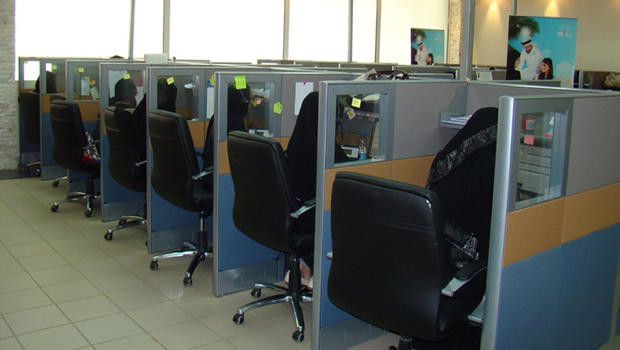The Ministry of Labor is looking into the possibility of creating an attractive work environment for Saudis in the private sector, similar to the government sector with regard to wages, working hours and two-day weekends with the aim to discourage them from changing jobs frequently.
Tayseir bin Mohammad Al-Mefrij, spokesman for the Human Resource Development Fund, said the ministry has filed its recommendations to the higher authorities especially about raising the minimum wages for Saudis in the private sector, which, he said, are under study.
He said Hadaf, an agency under the ministry, has launched a number of programs to help increase the number of Saudis in the private sector including access to loans, awards for hard work, in addition to job stability incentives and nationalization awards programs.
Hadaf is implementing a vocational educational program to enable Saudis to find equilibrium between personal ambitions and the needs of the labor market, he added.
Al-Mefrij pointed out that the responsibility for workers absconding from work leaving employers in the lurch should be shared by both parties.
He said it was important to study the factors leading to workers changing jobs such as unsuitability, low income and lack of incentives in addition to vague company policies.
Al-Mefrij attributed Saudi unemployment to the private sector, which hires skilled expatriate workers at low wages while Saudi job seekers look for higher salaries.
Economist Fadel Alboeinein said young Saudis avoid working in the private sector because of the low wages and lack of job security, whereas companies that provide job security and higher wages also have higher demand of job seekers.
He added that the private sector is not attractive for the majority of Saudis, except for those working in the petrochemical and banking sectors.
Economist and accounting professor in King Fahad Mineral and Petrol Institute Amro Al-Kurdi said vocational jobs pay low wages which are insufficient for Saudi youth to sustain a decent life in light of the increased cost of living.
Making private sector attractive for Saudis
Making private sector attractive for Saudis











